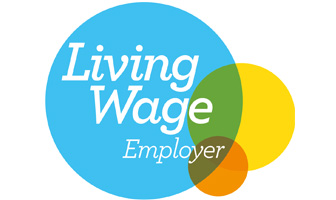Blog
Blog Posts
Summary
Where you have incurred business costs from a personal bank account or cash, as long as you have recorded the expense in the company records you can take this back from the company bank account (as long as the company has the cash available). There is no tax associated with this cost recovery and the important issue is to ensure you keep a receipt to show the valid business expense. You need to keep that receipt for up to 6 years in case HMRC want to inspect it. You can upload a PDF/JPG copy of the receipts to the company software when you input the expense and that will keep it in an accessible place. As far as expenses are concerned, as long as that cost is wholly and exclusively incurred for the business, it can be paid for by your company. That can be done directly by the business bank account or reclaimed by you from the company as above. The company will use that expense to reduce its year-end profit calculations that it must pay tax on.
Disallowable Expenses
There are some expenses which do not get tax relief as they are considered a benefit to you personally. These should not in any way be put through the company as they make you worse off (due to extra NIC and admin charges) and should be paid for privately.
These ‘benefits in kind’ include:
- Company cars and car maintenance costs (unless Electric or Commercial Vehicles)
- Health clubs and dental plans
- Personal travel
- Entertaining of clients or yourself (e.g. theatre, golf, horse racing)
Allowable Expenses
On the other hand, the following list of allowable expenses can be claimed through your company as long as they have a valid receipt to support:
- Advertising & promotion - e.g. website costs (hosting/design), business cards etc
- Bank charges/fees
- Books, newspaper & journals
- Computer software - e.g. software required for business purposes
- Equipment purchases - e.g. laptop/computer/phone/server/tablet
- Equipment insurance
- Home office - HMRC allow a £6 per week allowance for this and can be claimed through the year *
- Hotels/B&B - if you need to stay overnight for the purpose of work. *
- Legal Expenses
- Life Insurance - some specific policies (RLP's/Keyman) do not incur a benefit in kind.
- Mileage Claims - £0.45p for the first 10,000 miles per annum, then £0.25p thereafter. If you have a motorcycle then you are able to claim £0.24p per mile, for bicycles you are able to claim £0.20p per mile.
- Opticians costs - eye tests only
- Pension contributions
- Postage
- Printing, Stationery - ink cartridges, notebooks, pens etc
- Protective clothing - only company branded clothes are allowed
- Professional Indemnity/Employers & Public Liability - business insurances that are usually required when you are a freelancer
- Rental property (job related) - cost of rent/accommodation Monday to Friday where you return home to primary residence at weekends.*
- Relocation costs - up to £8,000 relocation costs allowable (including from abroad)*
- Subcontractor costs - if you use a subcontractor
- Travel costs - costs that relate to you getting to and from your place of work - Rail/Ferry/Air/Tolls/Car Parking - receipts must be kept.*
- Subsistence - any pre-packaged meals or a prepared meal from an outlet (restaurants etc).*
- Tools - tools that are required for your work
- Training courses & materials - relevant training courses and books required for the business
- £150 for Annual party allowance
- Triviality Payments in £50 Increments up to 6 times a year (watch out for a future blog on this).
24 Month Rule*
This rule determines if a contractor can claim travel expenses between their home and their client’s premises, so long as it is classified as a ‘temporary workplace’. A workplace would not be considered temporary if any of the following apply:
- You have worked at the same location continuously for a period of 24 months or more and spent more than 40% of your working time there.
- You know your contract will exceed 24 months. This applies from when you know or become aware that your contract will breach this time period. i.e if you have a 12-month contract which is then extended by 13 months, the point you accept the extension is when it's no longer considered temporary.
- You intend to work there for more than 24 months It's not always clear how these rules apply depending on an individual's circumstances so please speak to us if you have any specific scenario enquiries.
Add a comment:
Since Andrew has come on board under the supervision of Mike the transition could not have been smoother. The service and response has been well above expectations. We feel the Payroll services provides an additional backup service provided by Kings Oak Accountancy which takes away yet another task from our busy workload.
Mujib Choudhury, Atlantic Linen
Great to work with, always there to give a hand when needed. Always at the end of the phone when problems need sorting We have been with this Company for many years, would recommend . Running my accounts and PAYE, so this leaves us to concentrate on getting on with our business with no worries.
Sarah – Crossways Tavern
ACCREDITATIONS







